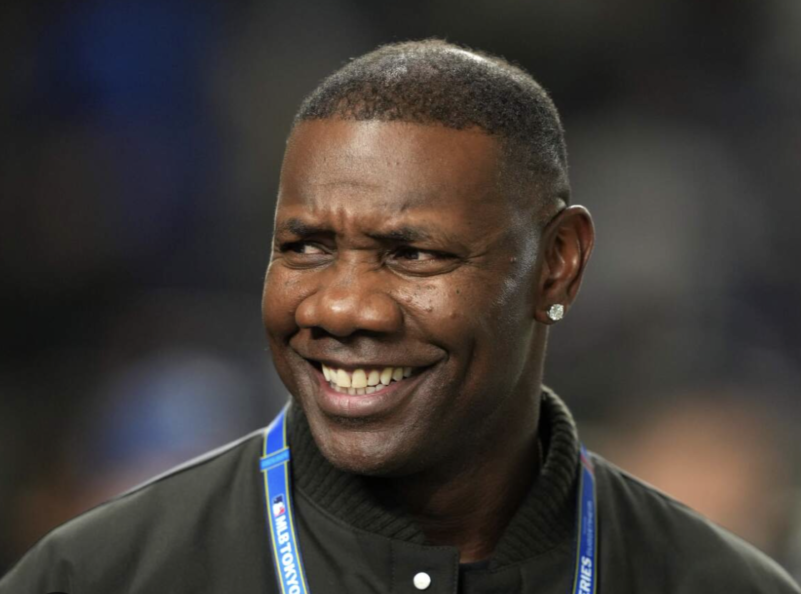Honoring Legacy: Ryan Howard Joins the Fight for Negro Leagues History
The Negro Leagues have played a pivotal role in American sports history, serving as a haven for Black athletes during a time when Major League Baseball (MLB) barred them from participation. Since its inception in 1920, the Negro Leagues provided a platform that not only showcased athletic talent but also fostered community and economic development within Black neighborhoods. With its recent initiatives, including the launch of the "Pitch for the Future" campaign, the Negro Leagues Baseball Museum (NLBM) aims to ensure that this rich history is remembered and celebrated.
The Legacy of the Negro Leagues
For over a century, baseball has been intertwined with American culture. During the segregation era, Black athletes formed their own leagues, creating a vibrant, competitive landscape that would ultimately influence the broader context of sports. In 2000, MLB recognized seven major Negro Leagues, signifying a step toward rectifying the absence of this significant history from the national narrative.
The NLBM, established in 1990, is the sole institution dedicated to preserving the legacy of African American baseball. Nestled in the historic 18th & Vine Jazz District of Kansas City, Missouri, the museum serves as a testament to the heroes who excelled despite systemic barriers.
"Pitch for the Future" Campaign
In a significant move, Phillies legend Ryan Howard has joined the NLBM’s “Pitch for the Future” campaign. This initiative aims to construct a new 30,000-square-foot facility designed to further the museum’s mission of celebrating Negro Leagues history and its critical role in advocating for social progress in America. Howard, alongside San Diego Padres manager Mike Shildt, focuses on inspiring young athletes and fans while amplifying the stories that shaped the game.
Howard emphasized the importance of the museum in a recent statement, stating, “For me, baseball is more than a game—it’s a legacy, a legacy built by trailblazers who not only played against the odds but overcame them to pave the way for players like me. The Negro Leagues Baseball Museum is more than a collection of artifacts; it’s a living, breathing tribute to those who shaped the game and changed history.” His commitment underscores the museum’s role not only as a site of remembrance but also as a catalyst for ongoing education and conversation around race and sports.
Educational Goals and Community Impact
The campaign includes plans for the Buck O’Neil Education and Research Center, positioning the NLBM as the only campus in the nation dedicated entirely to Negro Leagues and social history. This new facility will provide an immersive educational experience that connects visitors from around the globe to the cultural and societal impacts of the Negro Leagues.
Through the center, the NLBM aims to expand its reach, offering programs that educate about the historical significance of the leagues while also inspiring future generations to appreciate the contributions of Black athletes to American sports.
Ryan Howard’s Career and Contributions
Affectionately known as "The Big Piece," Howard played a remarkable 13-season career with the Philadelphia Phillies from 2004 to 2016. He became the fastest player in MLB history to hit 100 and 200 home runs, earning accolades such as the 2005 NL Rookie of the Year and the 2006 NL MVP. His legacy extends beyond personal achievements, as he actively participates in initiatives that aim to uplift the narratives and experiences of underserved communities.
Conclusion: A Step Forward in Unifying American History
The partnership between Howard and the NLBM marks a significant step in preserving a critical component of American sports history. It goes beyond mere commemoration; it aims to create a dialogue about the past while inspiring action for the future. As the NLBM prepares to expand, its role in educating the public about the Negro Leagues will undoubtedly forge connections that resonate through generations.
By focusing on education and preservation, initiatives like "Pitch for the Future" not only honor the past but also support a more inclusive narrative surrounding American baseball and its profound impact on social justice.
For those interested in exploring the music that accompanies this significant movement, visit NLBM Music Experience for a curated selection reflecting the essence of this historic legacy.









